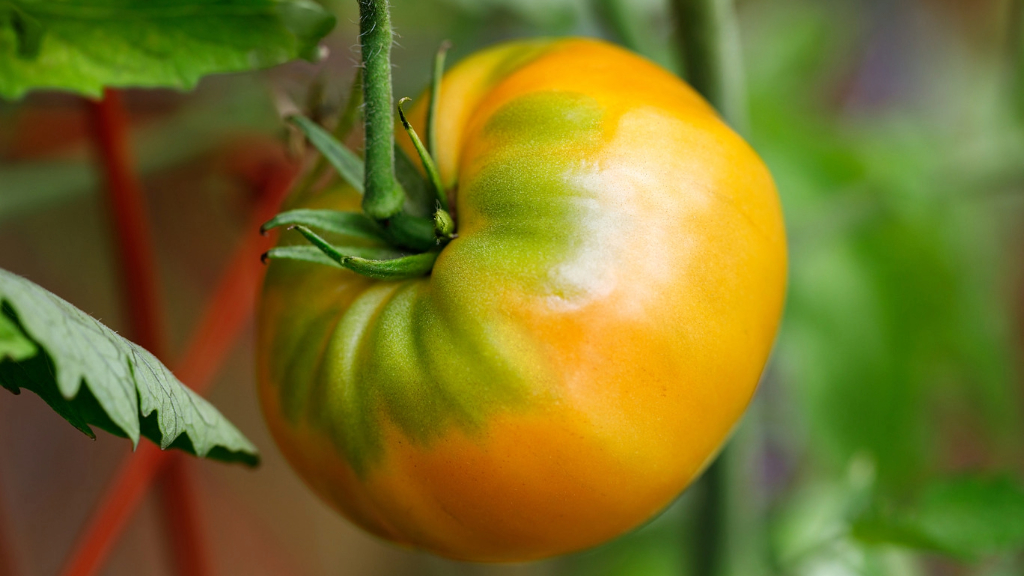Kellogg's Breakfast Tomato History


Sign up for the Gardening Know How newsletter today and receive a free copy of our e-book "How to Grow Delicious Tomatoes".
You are now subscribed
Your newsletter sign-up was successful
Pumpkin colored tomatoes? Kellogg's breakfast tomatoes are a cheery orange with sweet tangy flavor and super charged growth. These babies may get up to one pound and are packed with juicy, meaty goodness and very few seeds. The Kellogg tomato plant is an heirloom variety that is bound to please the entire family both as a slicing tomato and a robust sauce variety.
Kellogg's Breakfast Tomato History
Heirloom tomatoes are those varieties with a rich history of use and proven growth and fruiting. These types are useful in a heritage garden and often have interesting stories behind their development. Kellogg's breakfast tomato history is one of the more delightful tales and the fruit was voted one of the best tomatoes by Sunset magazine. Amusingly enough, the tomato is not named for the breakfast cereal developer of fame, Will Keith Kellogg, but for a humble gardener in Redford, Michigan. Sweet and meaty, the Kellogg tomato plant was discovered by Darrell Kellogg in his own garden. He liked the tomato so much he saved seed and began to breed the variety. It's easy to see why Darrell was so taken by the fruit. Mr. Kellogg's tomato seeds are now available by reputable sellers of heirloom and heritage seeds.
About Kellogg's Breakfast Tomatoes
These beautiful fruits are a stand out in flavor, production and texture. The interior is a sunny bright color reminiscent of fresh squeezed orange juice with a taste like a barrel full of sunshine. The sweet, but tangy, flavor is a perfect balance for any use and the tomatoes are resistant to sunburn and blossom end rot, developing without blemish almost every time. Kellogg's is considered an indeterminate variety, which means it needs staking and will continue to produce all season until the first frosts kill the vines. Failure to stake plants will find fruit bowing to the ground where slugs and other buggies can get at them. You might also end up with snapped stems from the weight of the tomatoes. Try tying individual fruit vines to the stakes or cage wires to help support the heavy fruit. The plants get huge, at 4 to 6 feet, but have fairly sparse, narrow, deeply cut foliage allowing plenty of sunlight into buds and developing fruit.
Growing Heirloom Tomato Plants
As with any tomato strain, they respond to organic rich, loose soil with good drainage. Start seed indoors 5 to 7 weeks before the last frost in most climates. Set out babies after hardening them off and once all danger of frost has passed. Soil should ideally be at least 60 degrees Fahrenheit (15 C.). For the most fruit production, choose a full sun location or where at least 6 hours of light will hit the plants. Most tomato plants benefit from some fertilizer. A couple weeks before installing the baby plants, work soil with plenty of compost and a 5-10-10 plant food. For sturdy plants, install seedlings in soil up to the first set of leaves. You can even plant leggy seedlings horizontally in the ground to achieve the effect. I choose to do this with all my tomatoes and will even strip off the lower couple of leaves to help create a thicker plant and deeper roots. Make sure you leave at least 4 to 6 leaves out of the ground to start their work as photosynthesizers. Tomatoes need water, water, water. The general rule of thumb is 1 ½ inches per week. Harvest tomatoes as they achieve that sunny orange glow and when firm with just a slight give. Kellogg's breakfast tomatoes make impressive pickled tomatoes, chutneys and sauces but try simply slicing one with olive oil and a pinch of salt first. You'll be hooked.
Sign up for the Gardening Know How newsletter today and receive a free copy of our e-book "How to Grow Delicious Tomatoes".
